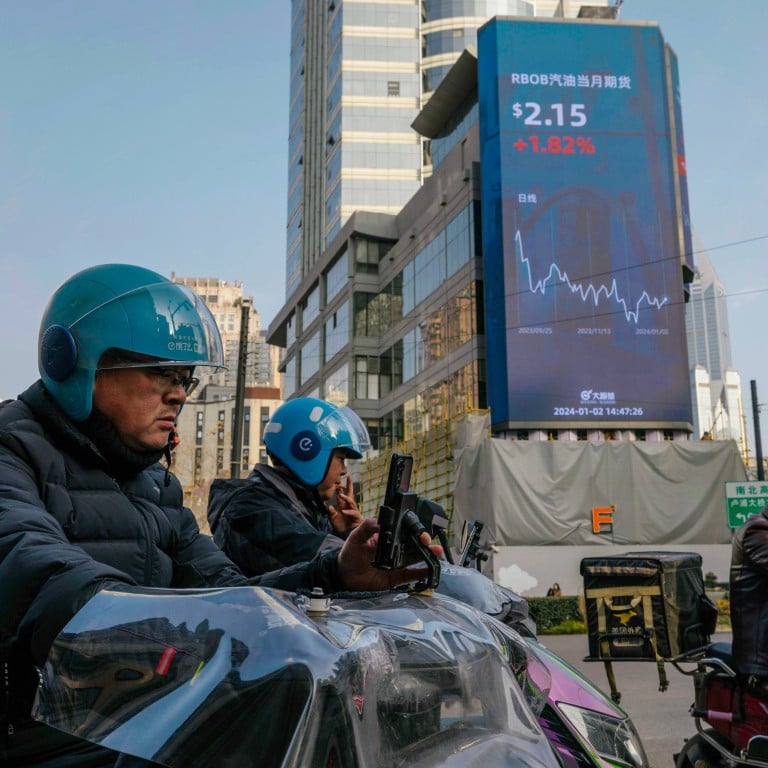
China hit with US$3.4 billion equities outflow as wary investors eye other emerging markets
- Overseas investors are continuing to sell their Chinese equities, a show of weakened confidence even as other emerging markets saw notable inflows
- Geopolitical risk cited as cause by financial trade group in monthly tracker of capital movements
Foreign investors continued to pull out from China’s capital markets, jettisoning a bundle of stocks and bonds worth US$3.2 billion in December even as wider emerging market securities attracted inflows.
Chinese equities suffered a US$3.4 billion outflow from non-resident portfolios in the last month of 2023, while Chinese bonds only had a marginal US$189 million inflow for the same month, according to preliminary data from the Institute of International Finance (IIF) released on Thursday.
In November, Chinese stocks saw inflows of US$191 million but overseas investors offloaded a total of US$4.31 billion worth of Chinese bonds.
This confirms the bifurcation between China and other emerging markets
Emerging markets securities overall had a net inflow of US$29 billion for the second consecutive month, the US-based trade group for the global financial services industry said in its monthly Capital Flows Tracker for December 2023.
While Chinese stocks and bonds have continued to underperform, other emerging market securities are firming up their recovery, the IIF said in its report.
“This confirms the bifurcation between China and other emerging markets, suggesting a change in sentiment from investors,” it added.
“Foreign investors’ ownership of local government debt in countries like Brazil, the Czech Republic, Indonesia and South Africa still lags significantly behind levels observed before the pandemic, which represents an opportunity for larger debt inflows in 2024,” the IIF said.
“Flows to China, however, will continue to be held back by elevated geopolitical risk.”
In the future, we will continue to maintain that the market plays a decisive role in the formation of exchange rates
The PBOC has pledged to maintain a “basically” stable yuan, and the State Administration of Foreign Exchange has also said it would “prevent cross-border capital flow risks” in their work plans for 2024 issued this week.
Zou Lan, head of the PBOC’s monetary policy department, said that the “significant” rebound of the yuan against the US dollar of late, along with a stable and “slightly” rising exchange rate against a basket of currencies, are better for the “adjustment” of macroeconomic measures and stabilisers for balance of payments.
“In the future, we will continue to maintain that the market plays a decisive role in the formation of exchange rates and guide enterprises and financial institutions to establish a risk-neutral concept,” Zou told state outlet People’s Daily, adding the bank will seek to stabilise market expectation and “resolutely guard against exchange rate overshoot risk”.

